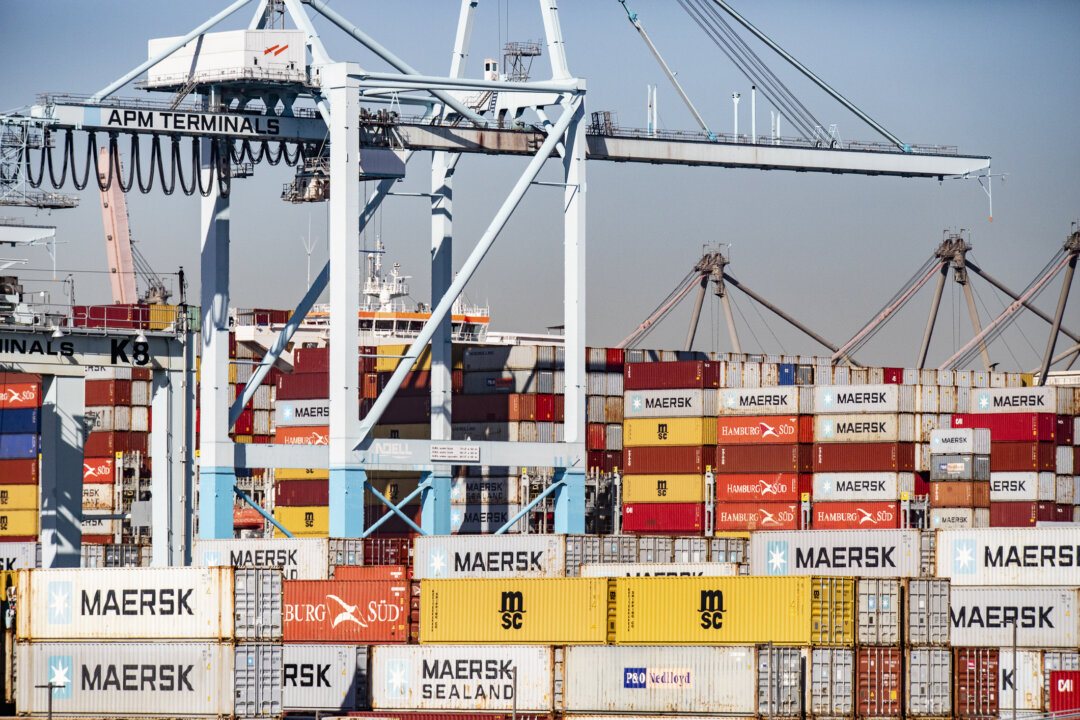Farrell responds to Navarro’s criticism, emphasising Australia’s adherence to US trade regulations in the aluminium dispute.
Australia’s Trade Minister Don Farrell has rejected claims that Australian aluminium exports are harming the U.S. market, saying that the increase in exports was done with the full approval of the U.S. government.
“I don’t believe we have [been killing the U.S. aluminium market],” he told ABC radio on Feb. 13.
“I’m sure that we comply with all of the obligations that America imposes on those companies that are supplying into the United States. And it wouldn’t matter whether it was beef or lamb or grain or steel or aluminium, I would be absolutely certain Australian companies comply with all of their obligations in terms of reporting into the United States,” he added.
The row comes amid ongoing discussions over Australia’s request for an exemption from the Trump administration’s new 25 percent tariffs on aluminium and steel based on the fact that Australia is one of the few countries where the United States has a trade surplus.
On Feb. 11, Australian Prime Minister Anthony Albanese revealed that during a phone conversation with U.S. President Donald Trump, he said he would consider granting Australia an exemption from the flat 25 percent tariff on steel and aluminium imports.
However, the next day, Trump’s senior trade advisor Peter Navarro dismissed this notion, accusing Australia of “killing our aluminum market.”
Navarro’s comments were based on the assertion that Australia had disregarded an earlier verbal agreement made during the Trump administration with the former Morrison Coalition government to limit aluminium exports after it was granted a tariff exemption in 2018.
“The volume of U.S. imports of primary aluminum from Australia has also surged and in 2024 was approximately 103 percent higher than the average volume for 2015 through 2017. Australia has disregarded its verbal commitment to voluntarily restrain its aluminum exports to a reasonable level,” Trump said in a proclamation.
Farrell denied being aware of any such agreement under the Albanese government, which took office in 2022, and reiterated that Australia had adhered to all U.S. government regulations regarding aluminium and steel exports.
The trade minister clarified that Australia’s increase in aluminium exports was not only approved by the previous U.S. administration but also in line with the country’s changing economic circumstances.
He pointed to supply disruptions caused by the war in Ukraine, particularly the impact on Russian exports, which led to the increased demand for Australian aluminium.
“We haven’t done, at any stage, anything that the American government has not been comfortable with,” Farrell said.
Illogical Tariff: Farrell
Farrell also argued that imposing tariffs on Australia was economically illogical given the longstanding trade surplus between the United States and Australia, with steel and aluminium representing a small fraction of total United States imports.
“Just to explain, a total two-way trade between Australia and the United States is roughly $100 billion—$70 billion of that is product we buy from America, $30 billion is product we sell into the United States. And of course, a part of that is the steel and aluminium that we’ve been talking about,” he said.
Farrell’s remarks highlight the imbalance in the trade relationship, suggesting that tariffs on Australia could have negative economic consequences for the United States.
As per the figures from the U.S. Department of Commerce show that Australia ranks eighth among the largest exporters of aluminium to the United States, far behind larger trade partners such as Canada and China.
Senator James Paterson, Liberal’s home affairs spokesperson, also downplayed the impact, stating that Australia is “a very small importer of steel and aluminium to the United States compared to its other trading partners,” reinforcing that Australia is not harming the U.S. market.
Prime Minister’s Diplomatic Efforts
The tariff dispute comes at a crucial time for Australian Prime Minister Anthony Albanese, who recently held a conversation with President Trump.
Albanese described the discussion as “constructive and warm,” adding that Trump had agreed that an exemption was “under consideration in the interests of both countries.”
Albanese also pointed to the enduring U.S.-Australia trade surplus, which has remained largely stable since the 1950s, and reiterated that Australia’s steel and aluminium exports made up only a small portion of U.S. imports.
Opposition Leader Peter Dutton showed support for the government’s efforts to secure an exemption, indicating that the tariffs may damage the U.S.-Australia relationship.
“I think it’s very important for the United States and for the Trump Administration to hear that there is a bipartisan position in relation to the prime minister’s call to remove this tariff from a very close and dear ally of the United States,” he said.

